Episodes
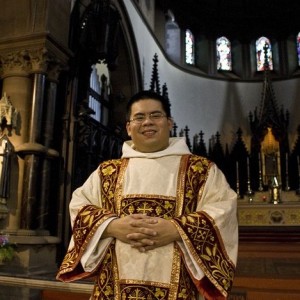
Monday Dec 16, 2019
Episode 090 - Deacons and Communication
Monday Dec 16, 2019
Monday Dec 16, 2019
In this episode, Bill and Paul discuss the role of deacons and others filling the role of "elder" in the Catholic Church, and the need for parishes to work hard at learning how to communicate with each other in this new technologically mediated cultural world. Bill mentions new work by the McGrath Institute to help parishes with this task.
Photo: a deacon wearing a dalmatic, from Test Everything.
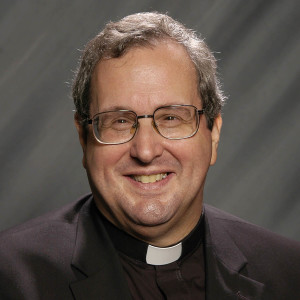
Monday Nov 25, 2019
Episode 087 - Fr. Robert Spitzer and Intellectual Culture (rerun)
Monday Nov 25, 2019
Monday Nov 25, 2019
Unfortunately, this week Paul got deathly ill and that prevented us from recording the promised "end of the world" episode. Here instead is a re-edited version of Bill's interview with Fr. Robert Spitzer from August 2018 (originally run as Episode 20). One of our earliest interviews and still, amid all the great guests who have given time to this little podcast, one of the best.
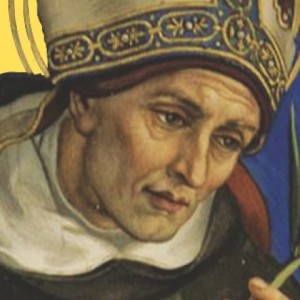
Monday Nov 18, 2019
Episode 086 - Indianapolis Gold Mass
Monday Nov 18, 2019
Monday Nov 18, 2019
Today's episode is a rundown of the Indianapolis Gold Mass, followed by a short selection of readings from Scripture and a bit about Albert the Great specifically, with a scrap of meditation on the vocation of a scientist.
- Gold Masses for those in the natural sciences were celebrated in a dozen cities on Nov. 15, the feast day of St. Albert the Great, who is the patron saint of natural scientists. One of those Masses, as described by TSSM co-host Dr. Paul Giesting, took place in Saints Peter and Paul Cathedral in the Archdiocese of Indianapolis.
- The Society of Catholic Scientists is the pre-eminent sponsor/supporter of these Gold Masses as part of an initiative established relatively recently. The Society’s website contains a page where the most comprehensive listing of planned Gold Masses is compiled.
- What is a Gold Mass? The SCS provides this information.
- Here are details of the life of St. Albert the Great.
- The Criterion, newspaper of the Indianapolis Archdiocese, is expected to publish an article about the Nov. 15 Gold Mass in early December.

Monday Nov 11, 2019
Monday Nov 11, 2019
- Today's episode is getting recorded in a tight slot on Sunday night. Bill is out of town at a workshop on self-publishing and Paul has spent an awful lot of time over the last three days peering into the engine bay of a 1987 Jeep Wrangler and screwing and unscrewing things.
- Robert Barron and Brandon Vogt pulled excerpts from the Joe Rogen - Dawkins interview and spent two weeks rebutting them. That's one point of departure for today's episode. The other, of course, is that the feast of Albert the Great is this coming Friday, meaning Gold Mass season is at its frenzied (?) peak, and Albert the Great is one of the cast of figures who put together the great medieval synthesis of Catholic Christian thought with Aristotelian philosophy and science. I myself just finished a curious old book called Roman Science by William Stahl, and that will probably also be in the back of my head as I riff a bit. (Yes, for tonight I'm writing the liner notes first and attempting to monologue to fit them.)
- Bill has an ebook, hence the self-publishing drive: When Headlines Hurt, Do We Have a Prayer?
- Get up to date listings on Gold Mass locations and times!

Monday Nov 04, 2019
Episode 084 - Gold Masses, Politics As Religion, Jordan Peterson
Monday Nov 04, 2019
Monday Nov 04, 2019
- This week Bill prods Paul along as he recovers from a massive proposal hangover. This week's episode is the end of a much longer conversation that may or may not otherwise remain on the cutting room floor about Jordan Peterson and other topics as far afield as Homestar Runner.
- We run down the list of Gold Masses that have been publicly announced to take place this coming month--featuring such highlights as a Mass celebrated by the Bishop of Bismarck, ND and a talk at Benedictine University in Lisle, IL on "The Mystery of Faith: from the Gold Mass to Gravity Waves."
- From there, we segue to discussing how in the contemporary world people try to fill to gaping hole left by religion with politics even more than science, and we finish with Bill's comments on one of Jordan Peterson's messages in an interview with Patrick Coffin on the essential role that living our own lives well plays in changing the world.
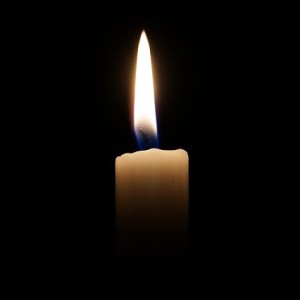
Friday Nov 01, 2019
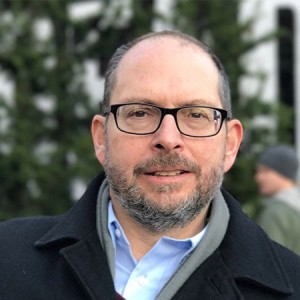
Monday Oct 07, 2019
Episode 080 - The Culture of "Science vs. Religion" with Jonathan Lunine
Monday Oct 07, 2019
Monday Oct 07, 2019
- Dr. Jonathan Lunine is the David C. Duncan Professor in the Physical Science and chair of the Department of Astronomy at Cornell University. He is also the vice president and a co-founder of the Society of Catholic Scientists.
- In this “part 2” of our interview, Dr. Lunine cited the book Secularity and Science by Elaine Ecklund (mentioned and linked in episode 79) and co-authors. The perceived conflict between faith and science is largely a Western phenomenon, according to Ecklund’s research, and it’s especially visible in the United States. Elsewhere, cultural education more fully incorporates an education about religion, so these people are more comfortable with the integration of the two.
- He said Catholic news services and The Christian Science Monitor are among the organizations where journalists are more likely interested in the combination of topics in science and religion.

Monday Sep 30, 2019
Episode 079 - Conversion and Witness with Jonathan Lunine
Monday Sep 30, 2019
Monday Sep 30, 2019
- Dr. Jonathan Lunine is the David C. Duncan Professor in the Physical Science and chair of the Department of Astronomy at Cornell University. He is also the vice president and a co-founder of the Society of Catholic Scientists.
- Here is information about the Vatican Observatory. It was one of the starting points for Lunine’s exploration of the compatibility between science and the Catholic faith.
- He met Stephen Barr in 2014, and this led to their discussions about establishing the Society of Catholic Scientists. Here is a talk given by Barr at the University of Chicago.
- Here is a talk by Lunine about Georges Lemaitre, a Catholic priest recognized as an originator of the Big Bang theory. In our conversation, Lunine described a presentation on Lemaitre that he gave at Cornell as a kind of “coming-out party” for him as a Catholic convert with his own story to tell. He has addressed Catholic students with the advice to share one’s faith story but to be judicious, following the practice of St. Paul, who adapted his messages to his audiences. A recommendation for discussions of faith: “There’s a time and a place for everything.”
- Lunine mentioned Elaine Ecklund, who has studied what scientists think about the American culture’s understanding that science and religion are incompatible. Harvard physicist Lisa Randall, who has said belief in God is incompatible with science, is an example of the resistance to faith that many scientists encounter in academia, Lunine said. Our culture gives much credibility to scientists, who owe it to their audiences to be clear about when they are speaking as individuals rather than scholarly experts. Lunine also mentioned the Thomistic Institute, which has a chapter on the Cornell campus founded by a graduate student.
- Part of the difficulty in the dialogue between science and religion is a popular but erroneous view that the Bible was intended to be a book of science. Here is a discussion of St. Augustine’s examination of this claim. Another challenge, Lunine said, is that our children generally grow up without a substantive education in religion.
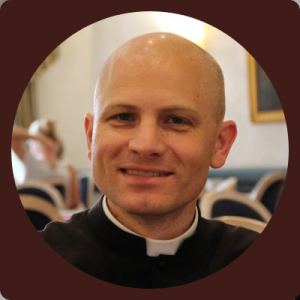
Monday Sep 23, 2019
Episode 078 - Fr. John Hollowell
Monday Sep 23, 2019
Monday Sep 23, 2019
- Father John Hollowell is a priest of the Archdiocese of Indianapolis. He is well-known for his blog, “On This Rock.” His pastoral duties include parish leadership and chaplain roles at DePauw University and the Putnamville Correctional Faciltiy.
- Fr. Hollowell spoke with Paul Giesting about the number of priests throughout history who have also been active as scientists. Here is one list of priest-scientists provided by National Catholic Register.
- Pope John Paul II created a commission to review the Galileo Affair, and this resulted in documents officially apologizing for the Catholic Church’s historic, and hyperbolized dispute against Galileo’s statements.
- Here is a link to the book that was discussed: Steven Pinker’s The Blank Slate: The Modern Denial of Human Nature.
- Fr. Hollowell and Paul discussed the long-running football rivalry between DePauw University and Wabash College.
- See Fr. Hollowell online at Facebook and YouTube. And also see his interview with well-known digital Catholic voice Brandon Vogt.
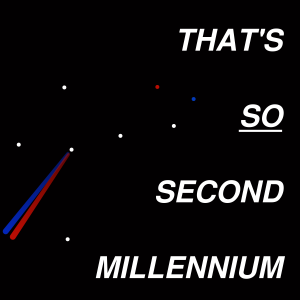
Thursday Aug 29, 2019
Post Christian: The Galileo business in 250 words
Thursday Aug 29, 2019
Thursday Aug 29, 2019
I prepared these notes for an interview with Brigid Ayer on the Faith in Action Show for Catholic Radio Indy, but ended up using almost none of them. We talked instead about matters in the present day, and why Bill (also on the interview) and I started TSSM. The interview is planned to go up the third week of September, with the podcast version of the episode on their PodBean feed Monday the 16th and the radio broadcast later in the week.
The dominant proximate source for this was a blog post or two from the Vatican Observatory blog, which I cannot even find right now, due to a surplus of riches in their coverage of the subject. For your own purposes, there are also a million books. I loved Galileo's Daughter; I haven't yet gotten up the courage to tackle The Galileo Affair: A Documentary History.
Science, Church, Galileo.
The Galileo affair was a messy piece of work, which a number of people, bishops and cardinals included, inside the Church recognized at the time. Galileo himself remained a Catholic and endured his condemnation with irritation as an obvious miscarriage of justice and a misapplication of the Church's own teachings. At the time, his ideas were considered by a number of people to be heretical both because they contradicted simple-minded interpretations of certain passages in the Bible and because, essentially, they contradicted Aristotle.
Aristotle's philosophy is immensely insightful, and continues to be a viable means of interpreting reality, but not all of it equally. The Scholastics had fought a long campaign to integrate Aristotle into the fabric of Christian doctrine, and the result was a beautiful intellectual accomplishment, but it allowed Aristotle to take too much significance even in matters where his thinking is simply not that insightful or valuable. He took the geocentric universe for granted.
When Galileo set out to prove the geocentric model wrong, it was easy for people at that time of religious turmoil to condemn him. On one side, Catholics who were sensitive to the shrill Protestant shrieking about Scripture were not eager to be forced into reading the handful of passages that seem relevant to the issue poetically or figuratively. On the other, in attacking something that Aristotle taught, essential or not to his philosophical framework, Galileo could be read by others to be trying to overturn all of philosophy and theology along with it.
The condemnations of 1633 were never enforced all that rigidly, and during the 18th and 19th centuries the official proscriptions on his thought and writings were loosened. The popes since Leo XIII have piece by piece vindicated Galileo completely, culminating in two statements by John Paul II (in 1991 and 2000, as I recall, and also belonging on the reading list) that said the cardinals and popes in 1613-1633 had made mistakes and been wrong to treat Galileo the way that they did.
The condemnation of Galileo was never a matter of infallible magisterium. The magisterium of the Church is exercised in the matters of faith and morals, not astronomy or philosophy, and not even social science. Further, the trial of an individual is not the sort of place one would look for magisterial teaching. Some of the Ecumenical Councils were called to try heretics like Arius, and those are the very definition of magisterial teaching, but you only get an E.C. called to debate your writings if you have 1) a massive movement, hence your trial is not really about you, but about ideas wandering at large in society and 2) the issue you are leading people on about is actually squarely in the arena of the teachings of the faith.

